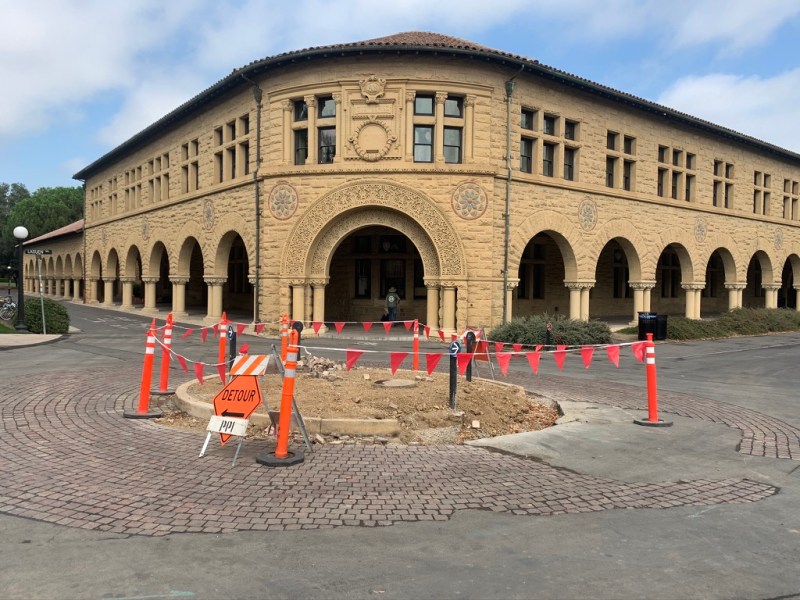Seven months after students left campus in March, we are living in a world that is not normal and has not been for some time. No student expected to spend their 2020-21 in this way — thousands of miles from friends and mentors, spending waking hours behind a computer screen.
Though these exceptional times have become increasingly routine, we must remember that they are not normal. The pandemic has not reached a statute of limitations, and we cannot slip back into business as usual. Things are still hard.
In particular, the struggles students first faced with an online spring quarter persist. Students still face a landscape where a stable WiFi connection and technological equipment represent the ticket to an education. Students struggling in difficult living situations still must operate in a space that is home in name only. Students who must work while at home are still balancing the pressures of work and school commitments. Many students and their families are affected directly by the pandemic and countless others have had to deal with its economic fallout.
Add to this the incredible uncertainty of the upcoming American presidential and general election, which will occur just two days before fall quarter’s add-drop deadline. Our country, which has never been a truly safe space for women, immigrants, low-income individuals, people of color, specifically Black and Indigenous people, as well as those who are LGBTQIA+, threatens to become an even more persistently hostile space. We cannot overstate this looming fear with which our friends live.
At the personal level, this is a time to be doubly kind to ourselves and uncommonly caring toward others. It is a time to expect less productivity from our days and to understand and accommodate the tolls of prolonged uncertainty and stress brought on by our public health and political circumstances.
At the academic level it is more important than ever to continue for professors to enact academic policies that are compassionate and responsive to the needs of students and the reality of the circumstances in which we live. We have seen some laudable examples. The physics department, for example, has opted only offer several of its introductory sequences with C/NC grading, citing the adverse learning conditions that make equitable letter grading untenable. Other professors are offering asynchronous class options to all students as well as flexible problem set deadlines.
But we have also seen professors who fail to respect academic regulations. Some professors have chosen to give finals, flouting recommendations against high-stakes examinations. Others have raised the stakes on in-class participation, penalizing students who watch recordings or forcing them to complete cumbersome additional activities. The chemistry department in particular has faced backlash for its testing and participation policies in many of its classes this quarter. Authors of a student petition seeking S/NC grading argue that the department has put forth a policy “inconsiderate of personal, remote obstacles such as poor WiFi connection, lack of technological support, medical needs and mental health” and students have flooded anonymous platforms with their negative experiences with its courses. There are also those students who, already, have faced backlash for a missed deadline or a slightly incomplete assignment.
Thus, we are asking this article to serve as a call for the following professor actions:
- Allow students to attend class synchronously or asynchronously, no questions asked. This would mean, for example, making lecture recordings available to the entire class.
- Remove all “final” examinations that ask students questions about content taught throughout the quarter, in line with University recommendations for “continuous assessment spread through the quarter”
- Ensure all technological tools are accessible for students from varying backgrounds and with different abilities; any tool that is not accessible, for example, to students who are hearing or vision impaired cannot be used in the classroom without significant modification
As the pandemic rages on, it is our job to remind ourselves that this is not normal; we must keep in place all extraordinary policies and support systems.
No matter how many Zoom lectures pass, these are still unprecedented times.
In a previous version of this piece Indigenous was not capitalized. We appreciate that this was brought to our attention. The Daily apologizes for this error and the harm it caused. We will be discussing corrective action in our upcoming meetings, and we welcome any suggestions or criticism.
The Vol. 258 Editorial Board consists of Claire Dinshaw ’21, Layo Laniyan ’22, Elizabeth Lindqwister ’21, Adrian Liu ’20, Patrick Monreal ’22, Megha Parwani ’21 and Cooper Ryan Veit ’22.
If you have feedback for the Editorial Board, fill out this form or contact the Editorial Board at opinions ‘at’ stanford.edu.
The Daily is committed to publishing a diversity of op-eds and letters to the editor. We’d love to hear your thoughts. Email letters to the editor to eic ‘at’ stanforddaily.com and op-ed submissions to opinions ‘at’ stanforddaily.com.
